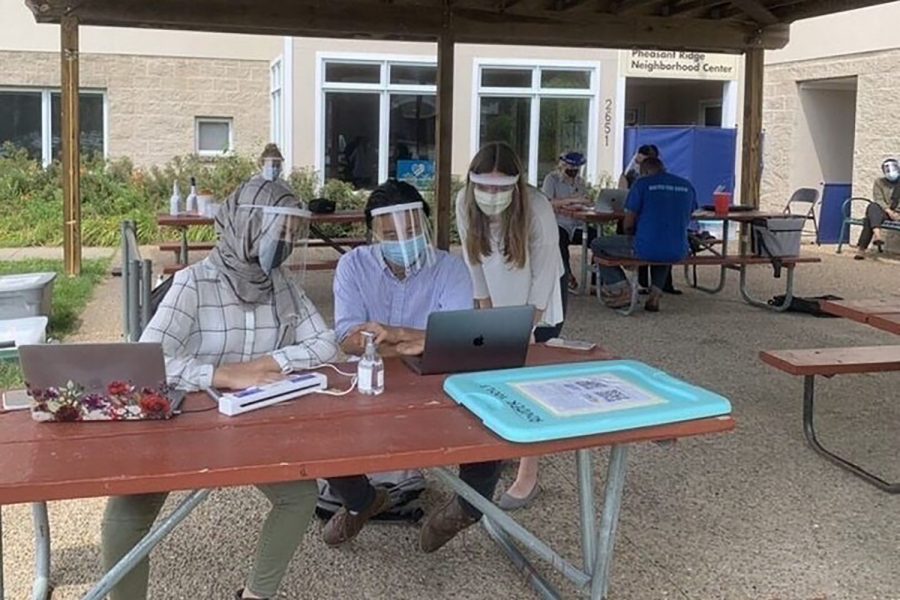University of Iowa grant to provide future mental health care experts, services for rural Iowa counties
A $1.8 million grant will help train psychology and social work students to treat mental health in Iowa’s rural areas through the UI Mobile Clinic.
July 27, 2021
University of Iowa Health Care, alongside the UI’s College of Education, will train students to develop a future workforce of mental health specialists in rural Iowa this fall.
The UI project, “Building a Mental Health Workforce to Serve Rural Iowa Youth,” will provide training for students through a $1.8 million federal grant from the Behavioral Health Workforce Education and Training program.
The Health Resources and Services Administration, an agency of the U.S. Department of Health and Human Services, assists those living in non-metropolitan areas with economic and medical vulnerabilities by improving their health care.
According to 2019 data, the Iowa Data Center reported that 35.7 percent of Iowa’s population lives in geographically rural areas.
Through the UI Mobile Clinic, the grant will provide training for students at the UI pursuing a doctorate in counseling psychology, a master’s in social work, and medical students from the UI Carver College of Medicine specializing in mental health services.
Saba Ali, a professor within the education college and co-director of the grant, said the grant’s team will also be partnering with community agencies such as UI Hospitals and Clinics to give psychology and social work students opportunities to practice.
“If medical students come across working with folks in these communities who need mental health care, they can easily refer them to one of our students or our clinic in order to be able to get access to some of these services,” Ali said.
Training will expand throughout the course of students’ time during the duration of the project, Ali said.
Many children drive up to 50 miles to reach mental health resources, Megan Foley Nicpon, also a professor in the education college and co-director of the grant, said. She said going into communities with the mobile clinic is a better way to help children.
“I think that right now, access to mental health care in rural communities is much more challenging than it is in urban communities in Iowa,” Foley Nicpon said.
Ali said she credits the shortage of experts in rural areas to not having enough people trained in the primary care and mental health field.
“Health care has a shortage issue in general with other allied health professionals to primary care services,” Ali said. “A huge hole for a lot of rural communities is getting access to good primary care or other health care services.”
The Iowa Department of Education reported in 2017 that one in five children ages 13-18 has or will have a “serious mental illness.”
Denise Martinez, faculty director for the UI Mobile Clinic and co-project director, said in a statement on July 12 that she hopes the program will inspire trainees to continue to work with patients in rural areas throughout their careers.
“There is evidence that shows that residents who train in rural communities are more likely to practice there after their training is completed,” Martinez said.
According to the Centers for Disease Control and Prevention, children who are mentally healthy will ensure they reach developmental and emotional milestones, and live happy and healthy lives.
Foley Nicpon said a lot of habits that people develop in adulthood have their roots in childhood experiences. In Iowa, the second leading cause of death in ages between 15-24 is suicide according to the Iowa Department of Education.
“I think that health across the lifespan is important. And so, a lot of the habits that we develop in adulthood have their roots in our childhood experiences,” Foley Nicpon said. “If you can intervene at a young age and childhood or in adolescence, we anticipate and we hope to have better outcomes long term. It’s more of a prevention sort of model.”
If you are having thoughts of suicide, call the National Suicide Prevention Lifeline at 1-800-273-8255 (TALK) or go to SpeakingOfSuicide.com/resources for additional resources.



